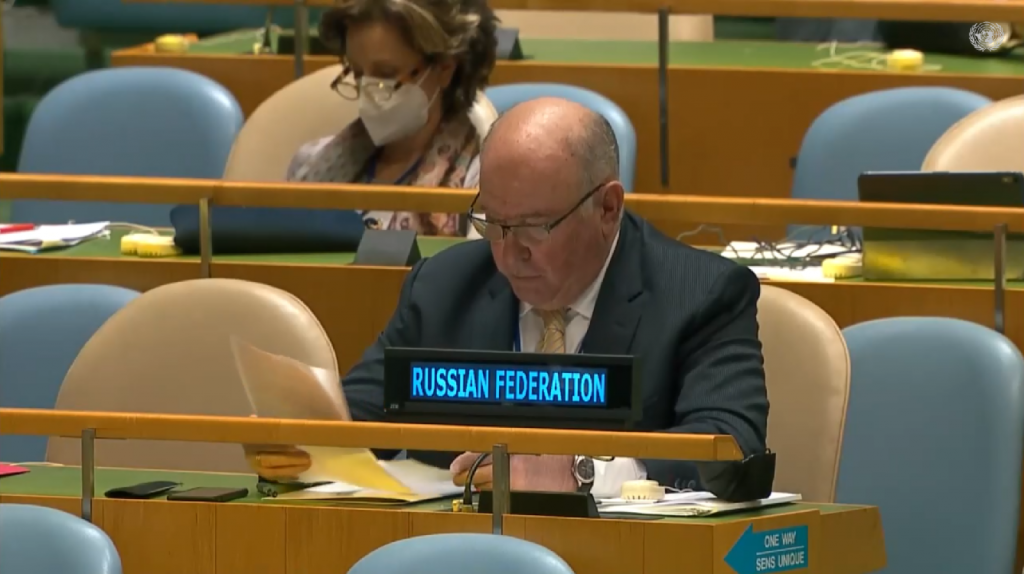Statement by Grigory Karasin, Chairperson of the Federation Council Committee on Foreign Affairs, at the Parliamentary Hearing at the United Nations
Mme.Chair,
Colleagues,
I’ll probably start with the words of gratitude to the IPU and UN for convening such an interesting and important meeting.
Russia is a social state whose policy is aimed at creating conditions that ensure a decent life and the free development to everyone.
The Government is constantly working to reduce the level of inequality, both domestically and abroad, through development assistance programs.
In accordance with the Decree of the President on National Development Goals of Russia until 2030, the indicators describing the achievement of national development goals include “poverty level reduction[1] by half compared to 2017” and “ensuring the rate of sustainable growth of population income and pension maintenance not lower than the inflation rate.”
The unified plan for achieving the national development goals of the Russian Federation for up to 2024 and for the planning period up to 2030[2] provides for the reduction of the poverty level from 12.9% to 6.5% during 2017–2030, annual growth of population disposable income by at least 2.5% during a period of 2022–2030.
The objectives of Sustainable Development Goal 10 (reduce inequality within and among countries) are addressed by the Demography[3] national project (which includes among other things paying maternity capital to families upon the birth of children), the Digital Economy national program[4] (in terms of eliminating the digital inequality), the Spatial Development Strategy of the Russian Federation until 2025[5] (in terms of reducing differences in the level of socioeconomic development between regions — to reduce the interregional differentiation of the human development index by 3% by 2025 compared with 2017), and the Accessible Environment[6] state program, which provides for an increase in the proportion of priority social, transport, engineering infrastructure facilities accessible for people with disabilities and other people with limited mobility to 70% by 2025[7].
It should be noted that the pandemic has seriously undermined the achievements of recent years in implementing the Sustainable Development Goals. Russia is committed to the development of multilateral cooperation while preserving the leading role of the United Nations in overcoming the negative consequences of the pandemic and bringing international relations to a level that would allow the community of nations to achieve the Sustainable Development Goals by the target date[8].
Thank you very much.
[1]The poverty level is the proportion of the population with a monetary income below the subsistence level.
[2] Approved by Direction No. 2765-r of the Government of the Russian Federation dated 1 October 2021.
[3] The passport of the Demography national project was approved following a meeting of the Presidium of the Russian Federation Presidential Council for Strategic Development and National Projects on 24 December 2018.
[4] Approved by Minutes No. 7 of the meeting of the Presidium of the Russian Federation Presidential Council for Strategic Development and National Projects on 4 June 2019.
[5] Approved by Direction No. 207-r of the Government of the Russian Federation dated 13 February 2019.
[6] Approved by Resolution No. 1297 of the Government of the Russian Federation dated 1 December 2015.
[7] Official website of the Ministry of Economic Development of the Russian Federation. Voluntary National Review of implementation of the 2030 Agenda for Sustainable Development.
[8] Materials sourced from the Ministry of Foreign Affairs of the Russian Federation.
